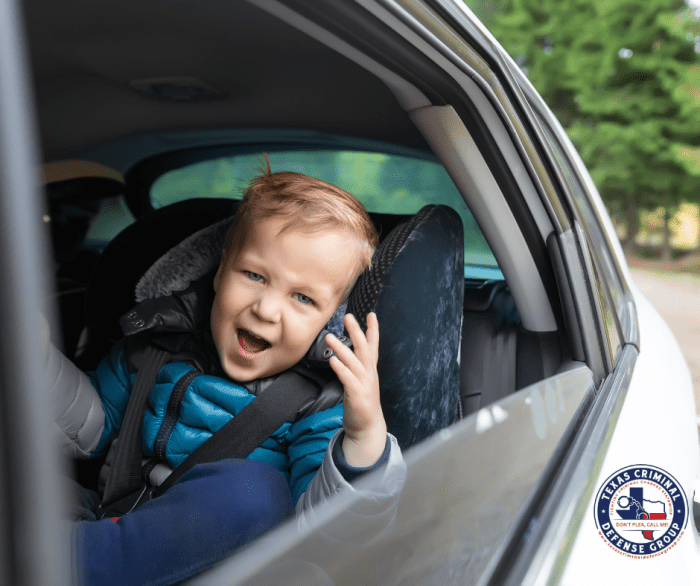DWI with a passenger under 15 is aceable. This sobering reality demands an exploration of the legal consequences, impact on the passenger, prevention strategies, ethical considerations, and potential legal defenses associated with this grave offense. Delving into these intricate aspects, we aim to shed light on the complexities of driving while intoxicated with a minor passenger, fostering a deeper understanding of the profound implications and societal responsibilities involved.
DWI with a Passenger Under 15: Legal Consequences
Driving while intoxicated (DWI) is a serious offense that poses significant risks to the driver, passengers, and others on the road. When a passenger under the age of 15 is present in the vehicle, the legal consequences of DWI can be even more severe.
Enhanced Charges and Increased Sentencing
In many jurisdictions, DWI with a passenger under 15 is considered an aggravated offense, resulting in enhanced charges and increased sentencing. The specific penalties can vary depending on the state or jurisdiction, but they typically include:
- Higher fines
- Longer jail sentences
- Mandatory license suspension or revocation
- Installation of an ignition interlock device
- Increased insurance premiums
In some cases, DWI with a passenger under 15 can also lead to child endangerment charges, which can carry additional penalties.
Examples of Cases
There have been numerous cases where drivers have faced enhanced charges and increased sentencing for DWI with a passenger under 15. For example, in 2021, a man in Texas was sentenced to 10 years in prison after being convicted of DWI with a passenger under 15. The passenger, a 12-year-old girl, was seriously injured in the crash.
Impact on the Passenger
DWI with a passenger under 15 can have devastating consequences for the passenger. The passenger may be physically injured or killed in the crash. Even if the passenger is not physically injured, they may experience emotional and psychological trauma as a result of the incident.
Physical Injuries
Passengers under 15 are particularly vulnerable to injury in a DWI crash. They are more likely to be seriously injured or killed because their bodies are still developing and they are not as strong as adults. According to the National Highway Traffic Safety Administration (NHTSA), children under the age of 15 are more than twice as likely to be killed in a car crash than adults.
Emotional and Psychological Trauma
In addition to physical injuries, passengers under 15 may also experience emotional and psychological trauma as a result of a DWI crash. They may feel scared, anxious, or guilty. They may also have difficulty sleeping, eating, or concentrating. In some cases, passengers under 15 may develop post-traumatic stress disorder (PTSD) as a result of the crash.
Legal Implications for the Driver, Dwi with a passenger under 15 is aceable
If the passenger under 15 is injured or killed in a DWI crash, the driver may face additional legal consequences. The driver may be charged with child endangerment or negligent homicide. These charges can carry significant penalties, including jail time and fines.
Prevention and Education

Preventing DWI with passengers under 15 is a critical public safety issue. There are a number of effective strategies that can be used to prevent these incidents, including:
Public Awareness Campaigns
Public awareness campaigns can help to educate the public about the dangers of DWI and the importance of never driving while intoxicated. These campaigns can use a variety of media, such as television, radio, and social media, to reach a wide audience.
Law Enforcement Initiatives
Law enforcement initiatives can also help to prevent DWI with passengers under 15. These initiatives can include increased patrols, sobriety checkpoints, and DUI task forces. By increasing the risk of getting caught, these initiatives can deter people from driving while intoxicated.
Examples of Successful Prevention Programs
There are a number of successful prevention programs that have been implemented to reduce DWI with passengers under 15. For example, the Safe Ride Home program in Texas provides free or discounted rides to people who are intoxicated. The program has been shown to be effective in reducing DWI arrests and crashes.
Ethical and Social Considerations

Driving while intoxicated with a passenger under 15 raises a number of ethical and social considerations. These considerations include:
Ethical Implications
Driving while intoxicated with a passenger under 15 is a clear violation of ethical principles. It is a selfish and irresponsible act that puts the passenger at risk of harm. Drivers who engage in this behavior should be held accountable for their actions.
Societal Responsibility
Society has a responsibility to protect children from harm. This includes protecting children from the dangers of DWI. By taking steps to prevent DWI with passengers under 15, we can help to create a safer environment for our children.
Ethical Considerations Table
| Ethical Consideration | DWI with Passenger Under 15 | DWI Without Passenger Under 15 |
|---|---|---|
| Duty of care to others | Breached | Breached |
| Risk of harm to others | High | Moderate |
| Intent to harm | Not necessarily | Not necessarily |
| Moral culpability | High | Moderate |
Legal Defenses: Dwi With A Passenger Under 15 Is Aceable

There are a number of potential legal defenses that can be raised in a DWI with a passenger under 15 case. These defenses include:
Lack of Intent
In some cases, the driver may be able to argue that they did not intend to drive while intoxicated. This defense is most likely to be successful if the driver was not aware that they were intoxicated or if they were under the influence of a prescription drug that they were not aware would impair their ability to drive.
Necessity
In some cases, the driver may be able to argue that they were driving while intoxicated out of necessity. This defense is most likely to be successful if the driver was driving to get medical help for themselves or for a passenger.
Challenges and Complexities
Mounting a successful legal defense in a DWI with a passenger under 15 case can be challenging. The prosecution will have a strong case against the driver, and the driver will need to present evidence to support their defense. In some cases, the driver may be able to negotiate a plea agreement with the prosecution.
Detailed FAQs
What are the specific legal penalties for DWI with a passenger under 15?
Penalties vary by jurisdiction but typically include fines, jail time, license suspension, and enhanced charges if the passenger is injured or killed.
What are the potential ethical implications of DWI with a passenger under 15?
Driving while intoxicated with a minor passenger raises ethical concerns regarding child endangerment, societal responsibility, and the duty to protect vulnerable individuals.
What are some effective strategies for preventing DWI with passengers under 15?
Prevention strategies include public awareness campaigns, law enforcement initiatives, designated driver programs, and educational materials aimed at reducing drunk driving and protecting young passengers.
